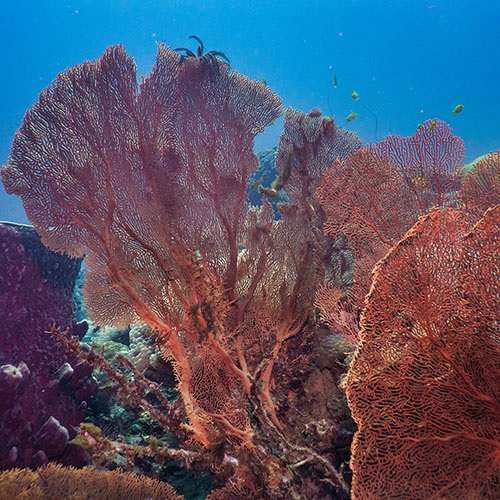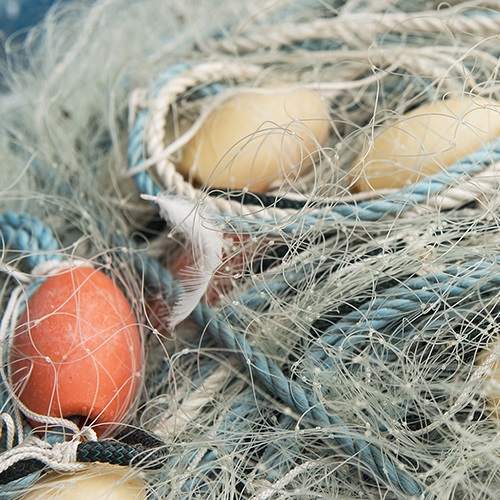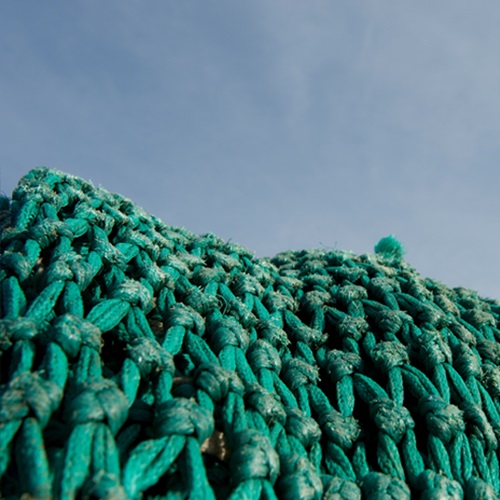The MSC ensures that certified fisheries allow the recovery of all endangered, threatened and protected species.
Species such as birds, turtles and marine mammals can be attracted to or disrupted by fishing vessels, putting them at risk of harm.
In fact, fisheries are the most significant human threat to marine mammals, including endangered populations. Direct impacts include entanglement in fishing gear, capture and death. Animals caught by mistake are usually referred to as bycatch or unwanted catch.
A fishery might also affect wildlife indirectly by changing migration routes or reducing food or safe habitats. Managing fishing impacts on these populations is critical if endangered animals are to survive and recover.
MSC requirements for protecting endangered species
The MSC Fisheries Standard's Principle 2 (minimising environmental impact) covers the impact of fisheries on the environment and wildlife. MSC certified fisheries must carefully manage and reduce any negative interactions with endangered, threatened or protected (ETP) species. They must also make sure nothing they do hinders the species' recovery.
Any impacts on endangered, threatened or protected species must be within limits set by national or international requirements. The MSC also has strict requirements in place for migratory species with a high risk of extinction and species subject to trade bans.
To make an assessment, certification bodies use information from local knowledge and scientific research. They might also look at regulatory monitoring programs, observer reports, inspections or even footage from electronic monitoring tools such as security cameras.
The new version of the MSC Fisheries Standard includes significantly strengthened requirements on ETP species to ensure impacts are reduced and species are allowed to recover.The impacts of fisheries on ETP populations must be explicitly assessed via a more precautionary approach. Fisheries are required to provide quantifiable evidence that they have effective management measures in place that align with global best practice to ensure the impacts of fisheries on ETP species are reduced.
A new classification will ensure more species are considered as ETP during an assessment and provide additional safeguards that fisheries must comply with to avoid bycatch or entanglements. This process uses national legislation and international listings from the Convention on International Trade in Endangered Species (CITES), the Convention on the Conservation of Migratory Species (CMS) and the International Union for the Conservation of Nature.
Our updated requirements will also be applied to all marine mammals, birds, amphibians, and reptiles regardless of whether they are endangered or protected, ensuring better protection of these species, which cannot be targeted by MSC certified fisheries.
Latest global efforts
The Fiji Albacore, Yellowfin and Bigeye tuna fishery reduced its impacts on sharks by switching from wire longlines, which can accidently entrap sharks, to monofilament traces which sharks can bite through. The fishery also fishes in deeper waters to avoid sharks and changed the shape of its hooks to circular ones to reduce the risk of unintentionally catching species such as sea turtles.Research is currently underway to understand the impact of recreational fishing on vulnerable seabird populations in the Peel Harvey blue swimmer crab and sea mullet fishery in Western Australia. The study, which is supported by the MSC’s Ocean Stewardship Fund (OSF), is using high resolution aerial imaging and on-site surveys to identify overlaps between fishing and wading bird activity.
The Joint Demersal Fisheries in the North Sea is working with VisNed, the Dutch Fishing Association, to develop a smartphone app to identify and register encounters with ETP species. The project is being supported by the OSF and aims to improve the quantity and quality of data available on ETP interactions.
Find out more

Minimising fishing impacts on ecosystems and habitats
The MSC Fisheries Standard rewards fisheries that protect ecosystems and habitats in the places where they fish.

Preventing lost and abandoned fishing gear (ghost fishing)
The MSC is working towards reducing ghost fishing by rewarding best practice in gear management and supporting improving fisheries.

The MSC Fisheries Standard
The Fisheries Standard measures the sustainability of wild-capture fisheries. The Standard is open to all wild-capture fisheries.
